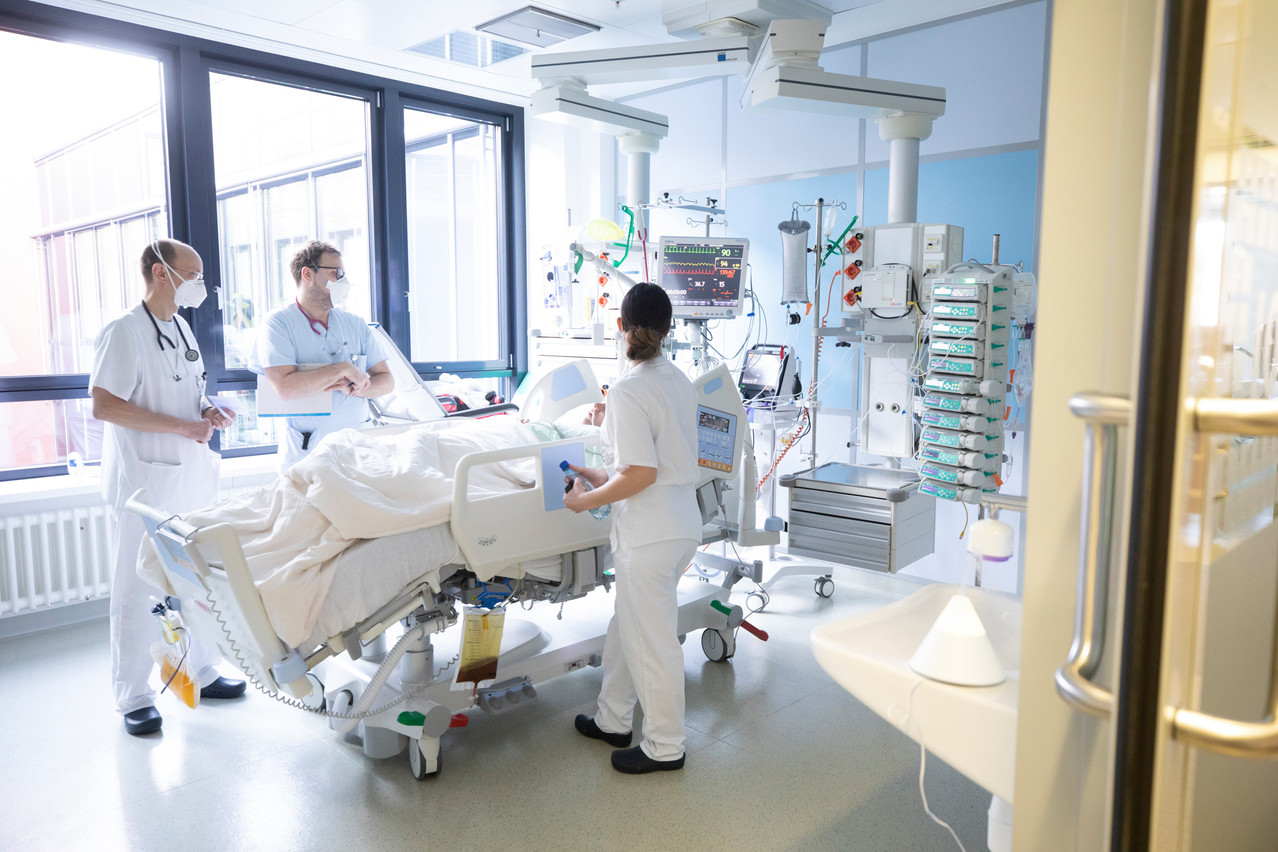The “carte sanitaire” is an overview of the grand duchy’s medical infrastructure, with the latest edition published on 4 July.
It shows that Luxembourg’s ten hospitals count 2,667 beds in total, including 2,042 for acute treatment, 558 for extended hospital stays, such as on psychiatric wards or palliative care, and 67 beds for long-term care.
This leaves the grand duchy with a rate of 4.2 beds per 1,000 inhabitants based on 2021 data and compares to 8 beds per 1,000 in Germany, 5.9 in France and 5.6 in Belgium. Looking at acute beds only, Luxembourg also trails the other countries, with 3.2 beds per 1,000 inhabitants, compared to 6 in Germany, 5 in Belgium and 3 in France. The comparison is based on 2018 data.
EU countries overall have been reducing the number of beds, with the OECD previously reporting an average 20% drop in hospital beds in member states between 2000 and 2018. The Luxembourg report says that this reduction in beds is linked to healthcare advancements allowing fir more ambulatory care solutions requiring less time by patients spent in hospital.
Under Luxembourg law, there can be a maximum number of 3,040 beds within the current available infrastructure.
But Luxembourg was also behind on other medical infrastructure, such as diagnostics machines. There are 11 MRI machines in the country--the equivalent of 17.2 per million inhabitants. Based on 2019 data, this compared to 34.5 in Germany, although the grand duchy was ahead of Belgium (11.5) and France (15.4).
A dispute between the health ministry and a medical centre in Grevenmacher is ongoing. The centre had purchased an MRI machine, but the government has argued that it isn’t allowed to operate the technology outside of a hospital.
An was struck between the centre and the CHL hospital to partner up, health minister Paulette Lenert said in May, with discussions about reimbursement of the scans by national health insurer CNS still ongoing. The CNS normally only pays back money spent on scans at hospitals in Luxembourg, with some fees covered for scans carried out outside the country.
